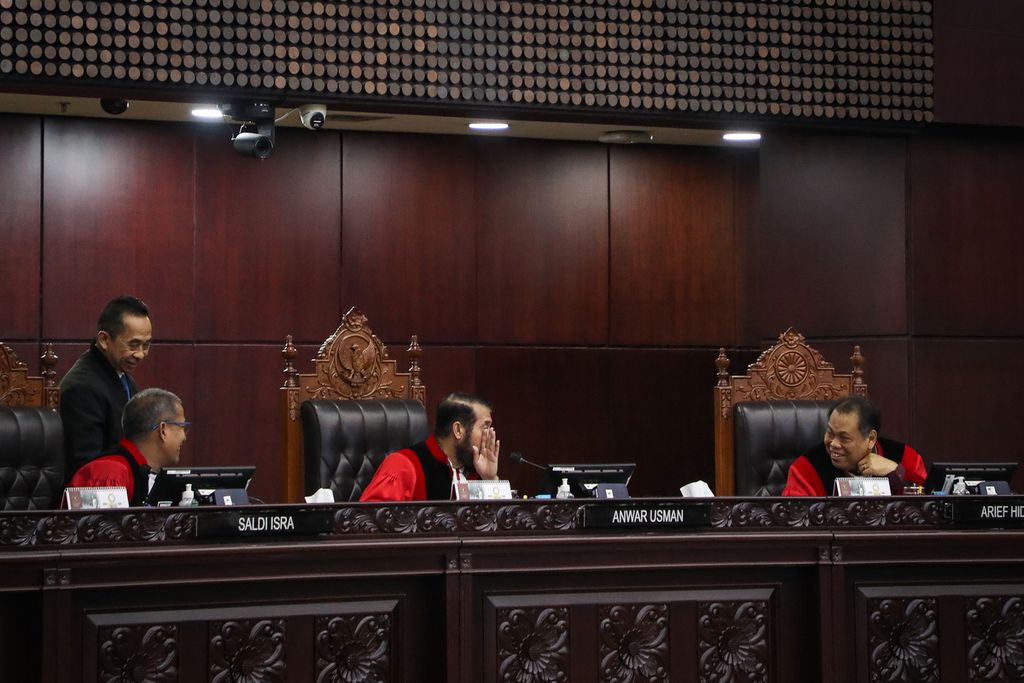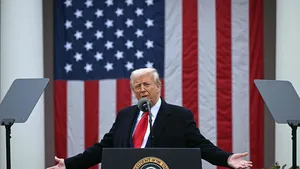EDITORIAL
Sit Together and Talk
The ruling of the Constitutional Court (MK) to grant the request of Corruption Eradication Commission (KPK) deputy chairman Nurul Ghufron has caused controversy. MK has been deemed to be “offside”.

Deputy Chief Justice of the Constitutional Court (MK) Saldi Isra, Chief Justice Anwar Usman, and Constitutional Justice Arief Hidayat (from left to right) during the judicial review hearing on Law Number 30 of 2002 concerning the Corruption Eradication Commission at the Constitutional Court Building, Jakarta, Thursday (25/5/2023).
In the name of justice, fairness and interinstitutional equality, KPK deputy chairman Nurul Ghufron petitioned the Constitutional Court to extend the terms of office of KPK leaders from four to five years. Five of the court’s justices, namely Anwar Usman, Arif Hidayat, Manahan Sitompoel, Daniel Yusmick and Guntur Hamzah, ruled in favor, while four justices, Saldi Isra, Enny Nurbaningsih, Wahiduddin Adams and Suhartoyo, opposed the request.
Another question arose following this decision: Will Firli Bahuri and his peers continue in their present roles until 20 Dec. 2024 instead of 20 Dec. 2023, or does the Constitutional Court's decision apply to KPK leaders for the 2023-2027 term? This remains a legal debate. However, MK spokesman Fajar Laksono said the court’s decision was effective from the moment it was declared.
Versi cetak artikel ini terbit di harian Kompas edisi di halaman 6 dengan judul "Duduk Bersama, Bicarakanlah".
Baca Epaper Kompas





